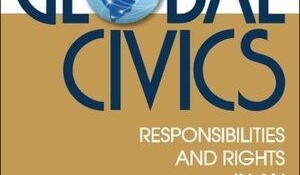In the final hours of the United Nations climate change conference held in Durban, South Africa, in late 2011, senior negotiators from wealthy and developing countries clustered in a widely reported “huddle” to resolve outstanding points of discord on how to launch negotiations for a long-term global climate agreement to succeed the Kyoto Protocol. Among the statements voiced in the huddle, one of the most intriguing was attributed to the lead United States negotiator, Todd Stern: “If equity’s in, we’re out.” In other words, if the resulting decision contained any references to the term “equity,” the United States would refuse to participate. As it transpired, the United States and like-minded countries succeeded on this point. The agreed upon Durban Platform for Enhanced Action contained no references either to equity or to the “common but differentiated responsibilities” of all parties for protecting the climate system. These omissions were notable since both are core principles of the United Nations Framework Convention on Climate Change (UNFCCC, Article 3.1), under whose auspices the negotiations took place.
This article sets out a conceptual framework for normative theorizing about fairness in international negotiations, with a particular emphasis on the role of feasibility considerations. We outline a set of minimum fairness standards and feasibility constraints that should be taken into account in developing proposals for reforming differentiation under the multilateral climate regime. On the basis of these considerations, we argue that a fair and feasible agreement will require reforming the current dichotomy between developed and developing countries’ commitments, coupled with a more principled approach to differentiating the level of national mitigation efforts. In the final section of the article we illustrate how these reforms could form the basis of a principled bargain between developed and developing countries.
To read or purchase the full text of this article, click here.
More in this issue
Winter 2012 (26.4) • Review
Briefly Noted
This section contains a round-up of recent notable books in the field of international affairs.

Winter 2012 (26.4) • Review
Global Civics: Responsibilities and Rights in an Interdependent World Edited by Hakan Altinay
"Global Civics" is an attempt to ignite a dialogue about responsibilities and rights in an increasingly interdependent world, and should be of interest to anyone ...

Winter 2012 (26.4) • Review
Dignity in Adversity: Human Rights in Troubled Times by Seyla Benhabib
In this book, Benhabib makes a compelling case for a “cosmopolitanism without illusions” that may help show the way through an uncertain world transformed and ...